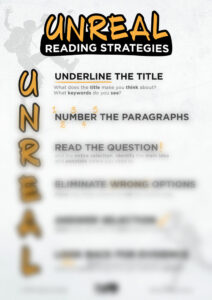Unleashing Potential: Empowering Boys to Soar Beyond Coasting

Many of my articles focus on improving literacy for boys who are below standard literacy levels. But what about the boys who ‘coast’ and don’t challenge themselves? Boys dislike learning that is too easy, but of course at the same time they do not want learning to be too difficult. In teaching, the principle of ‘optimal challenge‘ is what we aim for: it is the balance between learning tasks that are ‘too easy’ and ones that are ‘too hard’.
Let’s explore how to design for “challenge” in the learning environment: whether it’s in the classroom, home-based learning or completing homework tasks. Basically, how do we motivate our boys to achieve higher?
1. Boys will work for success if the learning conditions are right
Success and enjoyment does not mean easy. A subject is enjoyable if it appeals or is relevant to the boy, challenges their thinking and is taught in an active, fun way. When boys refer to ‘fun’ they mean two aspects of it: humour (having a joke with the teacher and his mates) and actively doing (the hands-on involvement and completion of a task that took mental challenge).
I taught Elliot in Year 7. He struggled with reading and writing and participated in as little as possible in class. He lived for 4 Wheel Driving. His intelligence in this area blew me away, yet he was a shadow in the class. With the librarian’s help, we sourced 4WD books and magazines and I tailored the core subjects of writing and maths problem-solving around his interest. As his learning confidence grew, so did his results. His achievements were ultimately down to the fact that he started experiencing success.
2. Powerful motivators for boys
The difficulty for schools and staff with an expanding curriculum is the ever-increasing requirements, targets and checklists within particular learning areas. Over-crowded curriculum places an ever-growing burden on teachers and education systems and it impacts on our boys. Based on my research and the comments of boys, four key factors can be identified as powerful motivators for boys at school :
a) Good teachers.
b) A strong emphasis on physical activity and challenge.
c) Learning that is presented as new and exciting, with elements of challenge and fun.
d) The opportunity to both work and socialise with your mates.
Teachers are the critical factor if boys’ social and academic standards are to rise. And what do boys bring to the classroom? Boys bring unique attributes: many value education, enjoy challenges, love physical activity, have a quirky sense of humour, show loyalty to their mates and show pride in things accomplished.
3. Gamification in learning and why it’s important
In our modern world, technology is naturally a driving force behind learning and the development of curricula. Gamification is the process of using game elements in a non-game context. It has many advantages over traditional learning approaches, including:
- Increasing learner motivation levels
- Improving knowledge retention
- Better learner engagement through social mechanisms like badges, points, or leaderboards
It’s why gamification is a crucial element in our Literacy for Boys and Literacy for Kids programs. The most popular models of gamification are included for our learners and includes:
a) Point systems
Assigning points for completing different tasks can encourage boys to work hard. It also provides an accurate representation of their effort level to show how much they have progressed throughout the level.
b) Badges
Badges are a fantastic way to acknowledge and reward boys for their efforts. A badge is an award given in the form of a virtual object when a boy meets literacy objectives.
c) Leaderboards
Leaderboards are great for creating competition among students, as they will want to see their name on top and work harder as a result.
d) Goal Tracking Progress Bar
Goal tracking progress bars are a great way to motivate boys toward working through the literacy tasks. The bar makes them aware of their performance.
Watch this 2-minute clip of the features of the Student Dashboard in Literacy for Boys ~ boys can track their percentage performance, view their progress bar, see their completed literacy activities and more:
A boy’s education starts well before he starts school. What happens in the home, his interaction with people of all ages and play are all part of a boy’s schooling. Schools and teachers have a vital role alongside parents in helping boys to reach their full potential. Ultimately, we want our boys to make the most of educational opportunities and putting the challenge, curiosity and the ‘want to learn‘ into his schooling.
FREE for new home and school subscribers! Our UNREAL Reading Strategies Poster
 I’m a bit of a fan of an Acronym – and this poster is perfect for helping boys to unpack text to assist with comprehension. Contact us today ~ info@literacyforboys.com.au
I’m a bit of a fan of an Acronym – and this poster is perfect for helping boys to unpack text to assist with comprehension. Contact us today ~ info@literacyforboys.com.au

Our programs ~ Literacy for Boys and Literacy for Kids ~ have had a huge uptake with schools and homeschoolers this year. It reflects two things:
a) the need for quality reading material that engages students
b) a decline in reading skills nationwide
We are incredibly passionate about improving kids’ literacy – research consistently supports the fact that confident readers achieve more highly than disengaged learners.
If we can get our children to enjoy reading they will grow into a reader, and that reader has more doors open to them in this world.
If you are wanting a resource that can boost your child’s or class’ literacy in 2024, please visit Literacy for Boys or Literacy for Kids
Check out our recent appearance on Channel 7 News ~
Parents ~ sign up for a free 30-day trial and improve your son’s literacy this year!
As an educator, do you want more from your literacy program? Contact us for a 30-day free trial in your school or classroom. Sign up for our newsletter and get FREE Comprehension Worksheets for Years 3 to 9.
Check out our blogs for more ideas and tips.
Using Technology to include all literacy learners
Steps to Successfully Support Disengaged Learners
See us featured in The Educator Australia magazine
Research confirms that early reading boosts literacy
Boys Love LFB – Here’s what they have to say!
Get boys reading in the digital age
Why write? Tips for reluctant writers
Brought to you by Tanya Grambower

